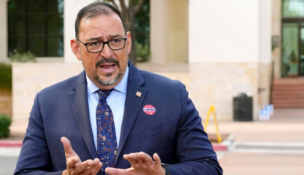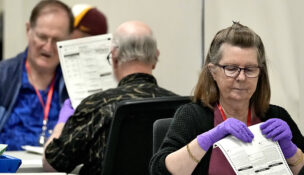State explores asset sales as alternative to tax hike
Arizona Capitol Reports Staff//April 3, 2009//[read_meter]
State explores asset sales as alternative to tax hike
Arizona Capitol Reports Staff//April 3, 2009//[read_meter]
The Arizona State Fairgrounds, state prison complexes and the Department of Agriculture building are among the state properties that could be sold and leased back to the state. The ubiquitous...
No tags for this post.

















